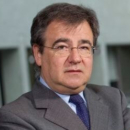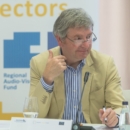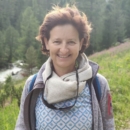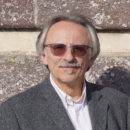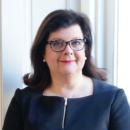Licensed Architect and Urban Planner. Member of ICOMOS, Executive Director of World Monuments Fund Spain.
Master’s in Architecture and Urban Planning, (Escuela Tecnica Superior de Arquitectura de Madrid 1993).
Specialist in Heritage Conservation (Escuela Tecnica Superior de Arquitectura de Madrid)
Master’s degree in urban planning laws (Universidad Rey Juan Carlos, Madrid).
PROFESSIONAL EXPERIENCE
As an architect and urban planner is author of several projects on Cultural Heritage Conservation/Restoration, as the Restoration of the Chapter House of the Monastery of San Clemente in Toledo, the Master Plan of the Historic Walls of Segovia for the city council or the Study of the Integrated Rehabilitation Areas of Plaza Mayor and Calle Mayor, Madrid.
As director for World Monuments Fund in Spain, has managed amongst other projects the Restoration of the Salon Rico paraments in Medina Azahara, Spain (2014/2024), the Restoration of the Partal Oratory in the Alhambra, ( awarded in 2019 with the Europa Nostra Grand Prix award), the conservation studies and Virtual Reality project of the Paleolithic cave of La Garma in Cantabria (included by Forbes magazine as one of 50 most relevant virtual reality projects worldwide); several studies towards the Management Plan of the Roman Aqueduct in Segovia, the restoration of the paintings on the Chapel of San Blas, at the Toledo Cathedral or the main Portal entrance in the Monastery of Santa Paula in Seville.
Scientific Director of the several courses and seminars related to Conservation and Urban Planning, such as the UNESCO City Lab for the 10th Anniversary of the Historic Urban Landscapes Recommendations, Cordoba 2022, in collaboration with UNESCO´s World Heritage Centre and the City of Cordoba, Capacity Building Seminar on the regeneration of Historic Cairo (2020) , Capacity Building Seminar on Restoration Criteria, Historic Cairo (2021), Capacity Building Seminar on the Historic wooden buildings in the Grand Caribbean (2022) and Secretary of the Forum Cultura y Naturaleza at Universidad Internacional Menendez Pelayo directed by Jose María Ballester from 2010 to 2020.
Scientific Director of the Seminar ‘Gaudí & trencadís. La creatividad del reciclaje‘ at the National Museum of Ceramics Gonzalez Marti, Valencia, Spain 2020.
As an independent professional has worked amongst other projects for the Heritage Impact Assessment in the City of Turkestan Republic of Kazakhstan (ICAAS) , Bahrain (BACA) , Tashken (Art & Culture Development Foundation)t, Republic of Uzbekistan. Expert witness for Santiago Calatrava LLC.






